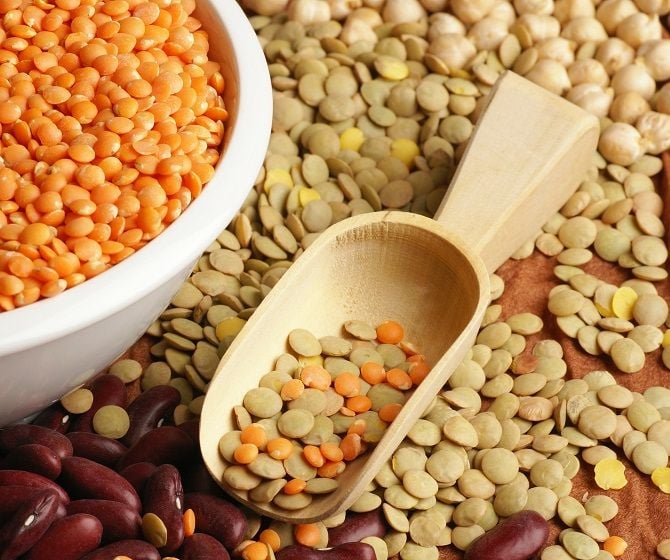By Will Hawkins
The hidden health benefits of festive food
The festive season is known as a time of indulgence and gluttony, but not all Christmas food is as unhealthy as you may think.
In fact, many of the foods you'll find yourself eating have lots of health benefits.
We've taken a look at some of the most common ingredients you'll find on a Christmas dinner table. Read on to find out more.
Turkey
If you're traditional, a turkey will likely be the centre piece of your Christmas table. Although it's not the most exciting of all the meats, it's low fat, particularly if you stick to the white meat, and it's packed with healthy nutrients, including:
- Protein
This is a good all-round nutrient that your body needs. For example, your hair and nails are mostly made from protein, you need it to build and repair tissues, and it's an important building block for muscles, bones and your blood.
- Selenium and zinc
Both of these minerals are good for your skin and immune system.
- Tryptophan
This is an amino acid, which is important for serotonin production - that's the 'happy hormone' which can help lift your mood.
Roast potatoes
No Christmas dinner is complete without a roasty or two. Potatoes often get a bad rap, but they are actually really good for you in moderation. They contain:
- Potassium
This is an essential macromineral that helps you regulate the fluid balance in your body and helps control the electrical activity of your heart and other muscles.
- Calcium
You might associate this with dairy products, but it's also found in potatoes and helps keep your bones and teeth strong.
- Vitamin C
An essential vitamin, it helps boost your immune system and prevent disease. It can also help you keep colds at bay, or speed up your recovery time.
Cranberries
Whether you're a fan of cranberry sauce, or like to put them in your stuffing mix, these little red berries usually make an appearance over Christmas. They contain:
- Antioxidants, such as Proanthocyanidins (PACs)
These help to fight against diseases, such as UTIs, cavities and gum disease.
- Vitamin E
This vitamin is involved in immune function, and it may help delay, or even prevent chronic diseases that are associated with free radicals, including heart disease, cataracts and arthritis.
- Fibre
You need fibre to help keep your digestive system working properly and your bowels moving regularly. Fibre can also help you maintain a healthy weight and reduce your risk of heart disease and diabetes.
Carrots
Rudolph's favourite snack, carrots are packed full of goodness and are delicious roasted, boiled or even mashed with some turnip. They contain:
- Carotenoids
This includes alpha-carotene, beta-carotene and lutein, which can help to protect your vision and reduce the risk of age related macular degeneration.
- Potassium
This is an essential macromineral that helps you regulate the fluid balance in your body and helps control the electrical activity of your heart and other muscles.
- Vitamin C
An essential vitamin, it helps boost your immune system and prevent disease. It can also help you fight off a cold, which is something you don't want around Christmas!
Chestnuts
Whether you roast them over an open fire, mix them in with your brussel sprouts, or pack them into a nut roast, chestnuts offer a proper taste of Christmas. They're very low in fat, so you don't have to feel guilty eating them and they also contain:
- Vitamin C
This helps give your immune system a boost and stimulates the production of white blood cells.
- Iron
This mineral is important in making red blood cells, which carry oxygen around your body.
- Protein
This will help you feel fuller for longer and is an important building block in your body.
Brussel sprouts
Love them or hate them, these little green things are packed full of essential nutrients, including:
- Vitamin C
From preventing colds, to helping wounds heal quicker, Vitamin C has numerous important jobs in the body.
- Omega-3 fatty acids
These help to look after both your heart and brain.
- Glucosinolates
It's been shown that these can help reduce the risk of heart disease.
Red cabbage
- Flavonoids
These are antioxidants that protect your body's cells from harmful free radicals, which are linked to heart disease, cataracts and arthritis.
- Vitamin C
It helps boost your production of collagen to support your muscles, connective tissues and it can help with wound healing too.
- Vitamin A
This vitamin keeps your skin and mucus membrane cells healthy, helping you defend yourself against illness and infection. It's helps you see better in the dark too.
Mulled wine
Nothing says Christmas more than a glass of hot mulled wine. Drunk in moderation, mulled wine, which is made usingred wine, contains vitamins and minerals with health benefits including:
- Polyphenols
Including quercetin and resveratrol, which help to protect your heart and keep it healthy.
- Piceatannol
This can stop fat cells growing by destroying them in the early stages of development, playing a small part in helping prevent weight gain (it won't help you lose weight though).
- Antioxidants
The spices in mulled wine (cinnamon, nutmeg and cloves) are rich in these and help reduce swelling, so you recover faster after exercise, by reducing muscle soreness.
So there you have it, Christmas dinner isn't so bad for you after all!

